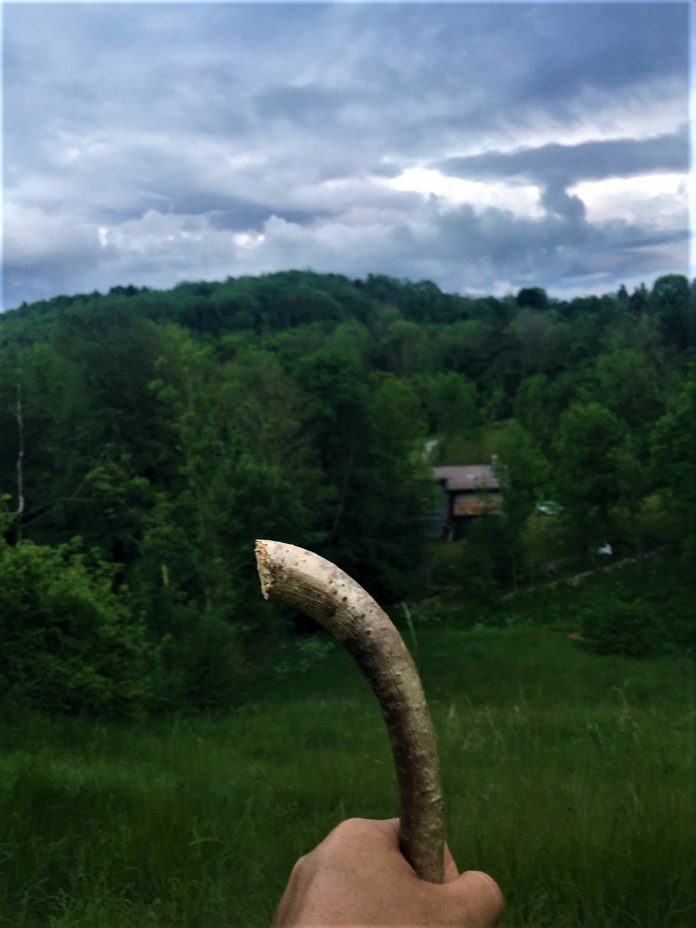by Alessandra Ressa
If you are into giant slugs and nettles the beautiful green plateau of Monte Prat, at the foot of the Carnia Alps, is the place for you.
Just wait for one of those intense mountain rain spells, all thunder and lighting and power going off and wind bending trees in two. Thunderstorms up here can be quite scary, lightning strikes close and thunder is so loud the walls shake.
But there is a special treat awaiting the brave at the end of each summer storm. As soon as the rain stops, armies of giant multi-colored slugs invade every road, path and trail. It’s a bizarre, slow procession that sometimes ends in tragedy when cars drive by, something which occurs very, very rarely in Monte Prat, with population of 7 including myself.
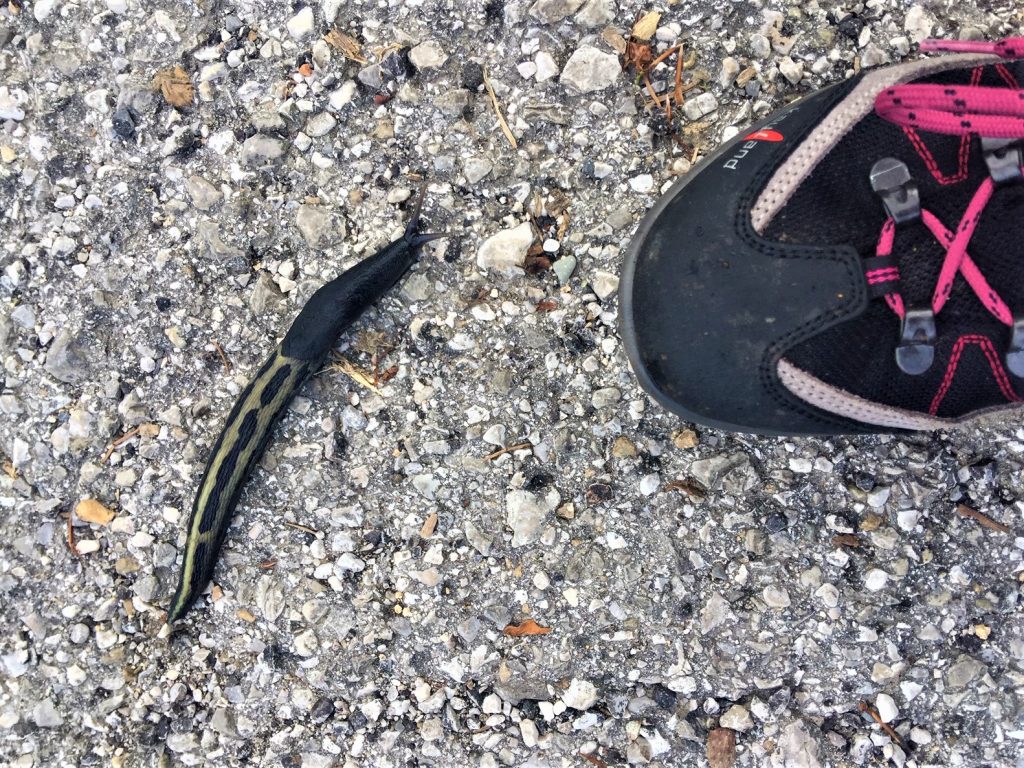
Due to their impressive length, these slugs are often mistaken for snakes. After abundant rains fluorescent yellow snails join the parade. And, once it gets dark, the wet roads and trails are taken over by thousands of toads of every size and color.
In this part of Carnia it’s always a good idea to bring a flashlight to avoid stepping on this carpet of oozing slime. Big snails, also abundant in this area, are picked and eaten by locals. Quite discriminatory, I find, as they don’t eat slugs and always make a disgusted grimace when I ask why. I’m quite sure taste and texture must be the same.
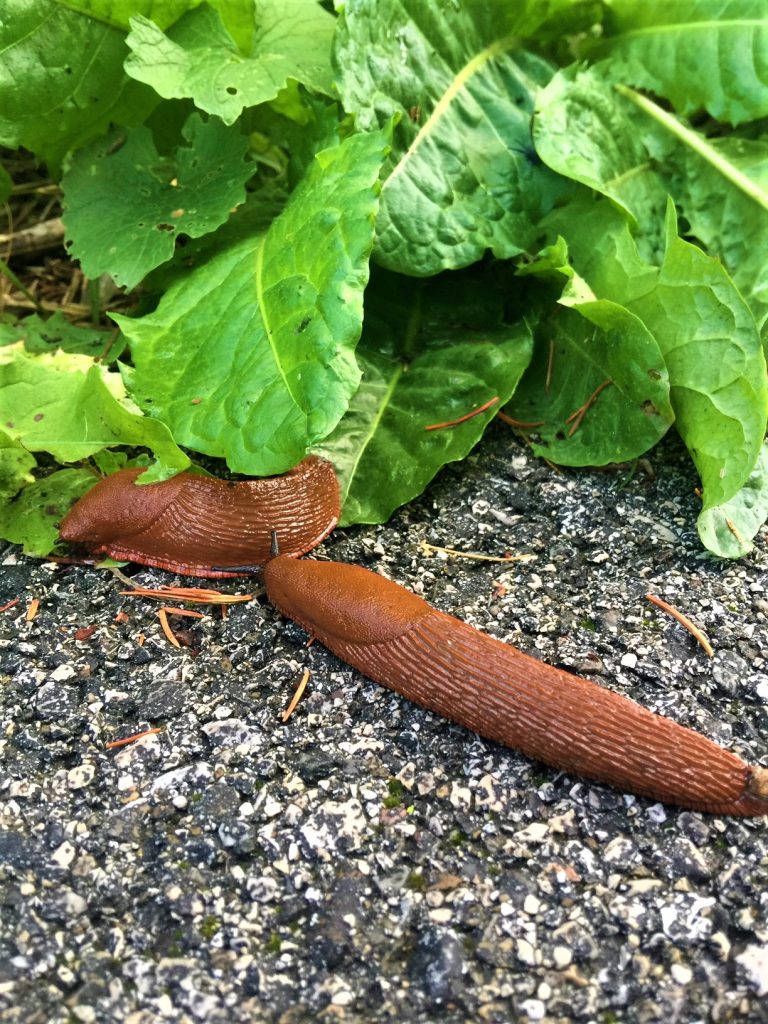
Because of the abundance of vegetable-eating crawlies, in this almost unspoiled corner of Friuli, it is basically impossible to grow any kind of spice or edible plant. Basil will only last one night before being gobbled up by hungry grasshoppers, mint will make it two nights before being attacked by caterpillars so you can bid farewell to mojitos.
The only plant that survives the voracity of Monte Prat insects is nettle which grows everywhere. And not a day goes by without getting stung, no matter how careful you are. It grows among flowers, trails, on the side of the narrow roads connecting the villages on the plateau, and even on the roofs of the old cottages. Its minuscule acid capsules appear to be particularly fierce in their super-mean Monte Prat variety. I did find a way of getting back at them. I pick them, cook them and eat them.
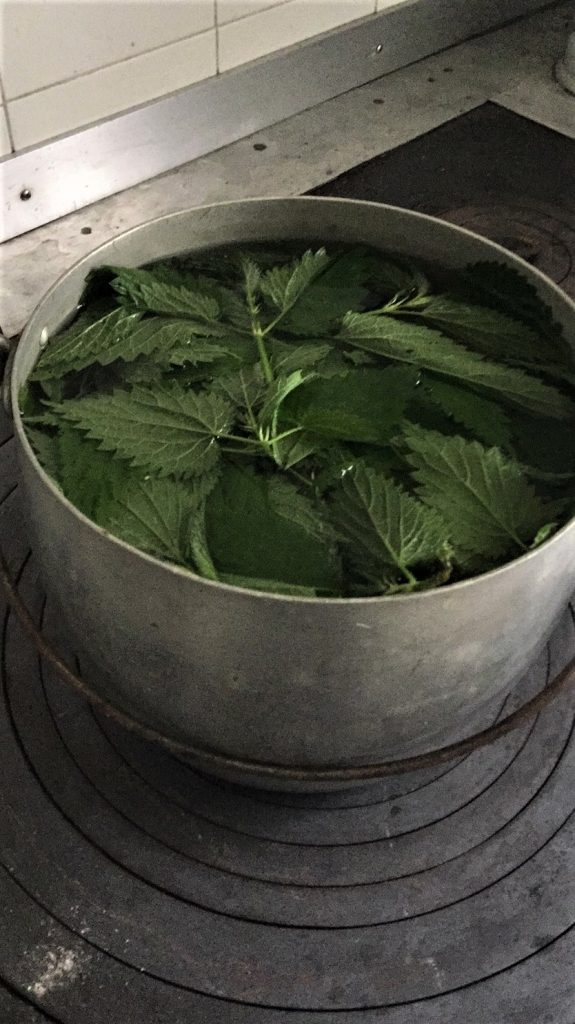
To pick nettles, you need sturdy leather gloves, scissors and boots. Remember, however, that they can sting through your clothes. But they’re certainly worth the slight challenge, for they are rich in vitamin C, calcium, potassium, flavonoids, histamine, and serotonin—all the great chemicals one needs to reenergize and combat colds and allergies. To save time, and to reduce manipulation of nettles to the minimum, I only look for tender young plants, cut the top leaves with scissors and let them fall into my basket. I wash them thoroughly and boil them for 15 minutes. Remember, nettle shouldn’t be eaten raw.
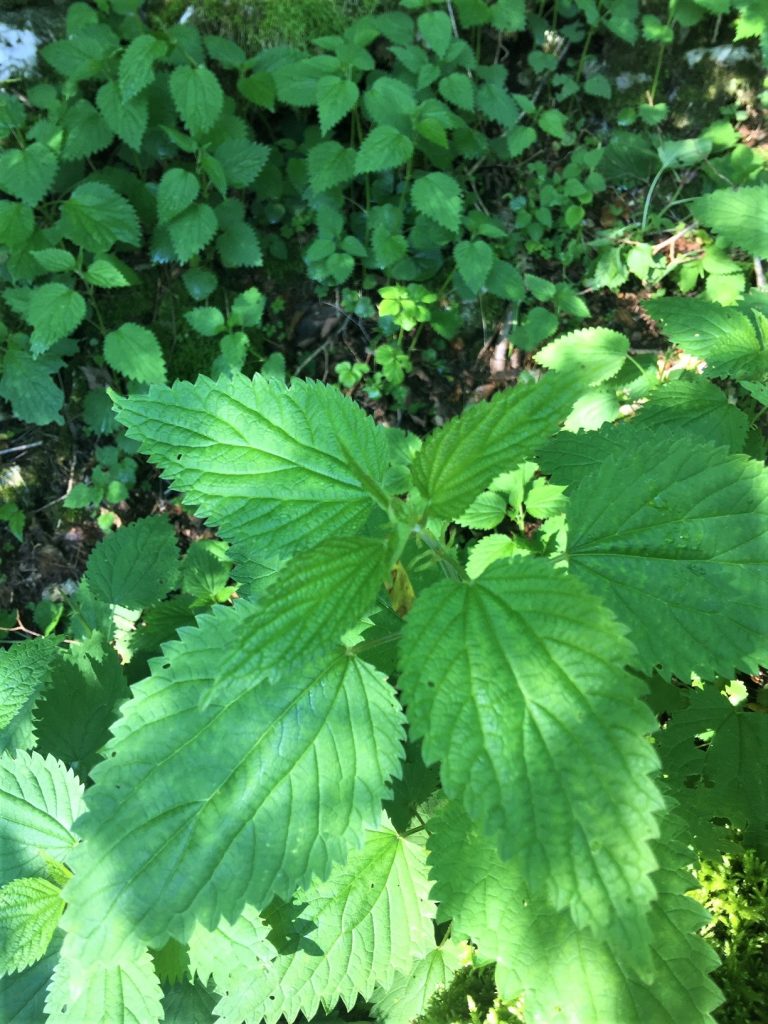
Nettle has a unique flavor and is a wonderful ingredient to use in soups, pasta dishes, frittatas—basically in any cooked dish where you would use young spinach. Soup is the quickest recipe and is simple and delicious. Just blend the cooked nettle together with a boiled potato in their cooking water. You will obtain a dark green, thick creamy soup. Add salt, pepper and olive oil. Although it looks like something Shrek the ogre might eat, it tastes wonderful and will impress your guests.
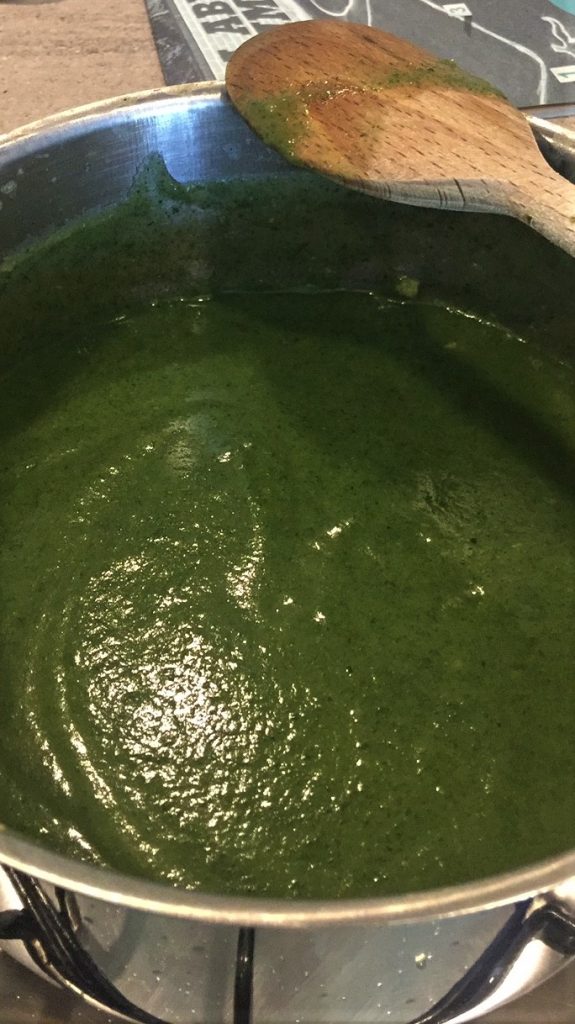
If you make your own bread, adding a couple of spoons of blended nettles to the dough will give it a bright green color and zest, while nettle pesto, preserved in a glass jar with salt, black olive pate, olive oil and abundant parmesan cheese (a garlic clove is optional), will come in handy if kept in the fridge.
Risotto with nettles is another tasty and very simple dish to prepare, just follow your usual risotto recipe using these wonderful greens as the main ingredient. Blended with boiled potatoes, nettles can also be used for gnocchi, and this is a recipe that everyone will love. Mix the right amount of blended nettles and potatoes with flour, making sure the dough remains soft but not too sticky.
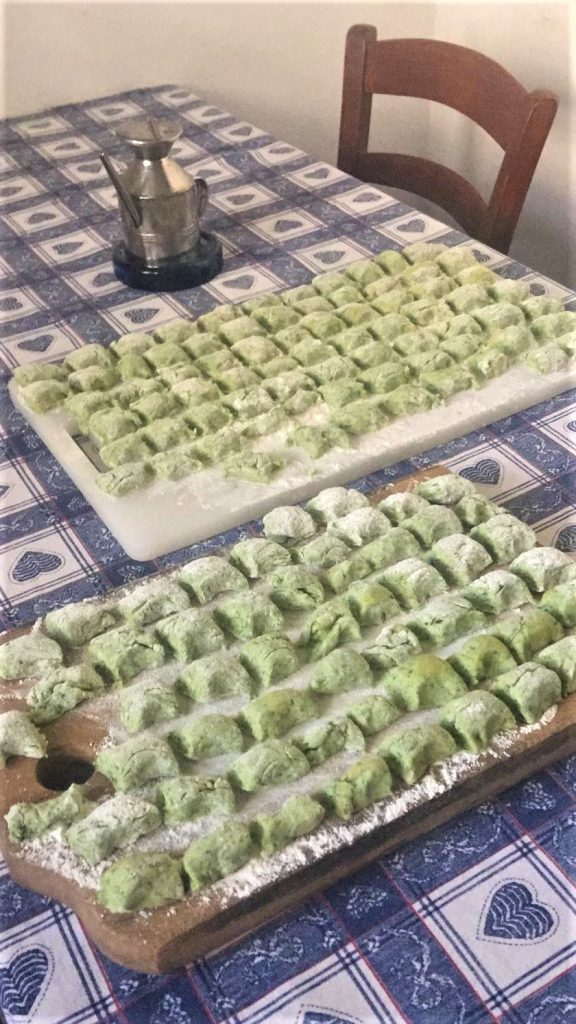
Boil the gnocchi dumplings in water (add salt to water when it reaches boiling point) until they float, drain and serve hot with melted butter, crunchy sage (previously fried in butter), breadcrumbs and grated smoked ricotta cheese. Lasagna with nettles is another house favorite, just make sure to add loads of your favorite cheese (and ham or sausage) between layers.
All of these wonderful ways to eat nettles are easy if you have a gas or electric stove and oven. Up here in the forest it is the wooden stove, the spolert, that does it all, and it takes forever! You need to start the fire and start cooking at the crack of dawn if you want to have dinner ready in the evening! And yet, local women would not change this traditional stove for any modern appliance. With a metal hook and centuries of mastered experience that must be embedded in their DNA, they throw in the air the cast iron rings that would send me, or you, straight to the hospital with third degree burns, and place the pots in just the right spot.
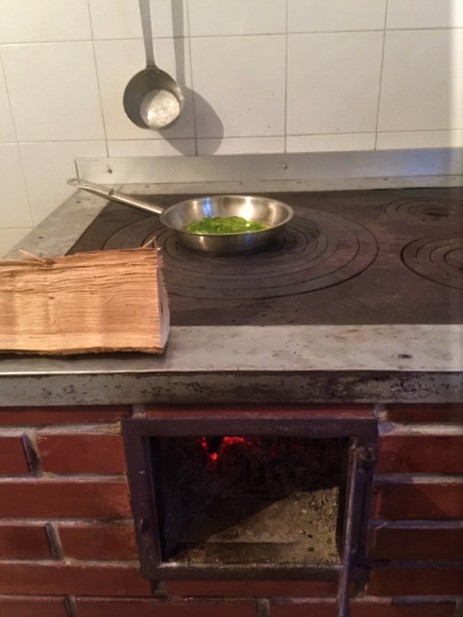
While you read this second report from the forests of Friuli you may feel relieved to learn I haven’t succumbed to the wolf that wanders through Monte Prat every night….Contrary to my initial belief, it isn’t a real wolf although it looks like one, only much, much bigger.
Abandoned years ago by a cruel master on this plateau when only a puppy, this huge half-dog, half-bear, half-wolf, half-something, never left the forests of Monte Prat and was “adopted” by the few residents who leave bowls full of leftovers each night. They named him Rocky, he rests in cool caves during the day and roams free at night, scaring chickens and chasing wild animals, and paying visits to all the cottages where lights are on.
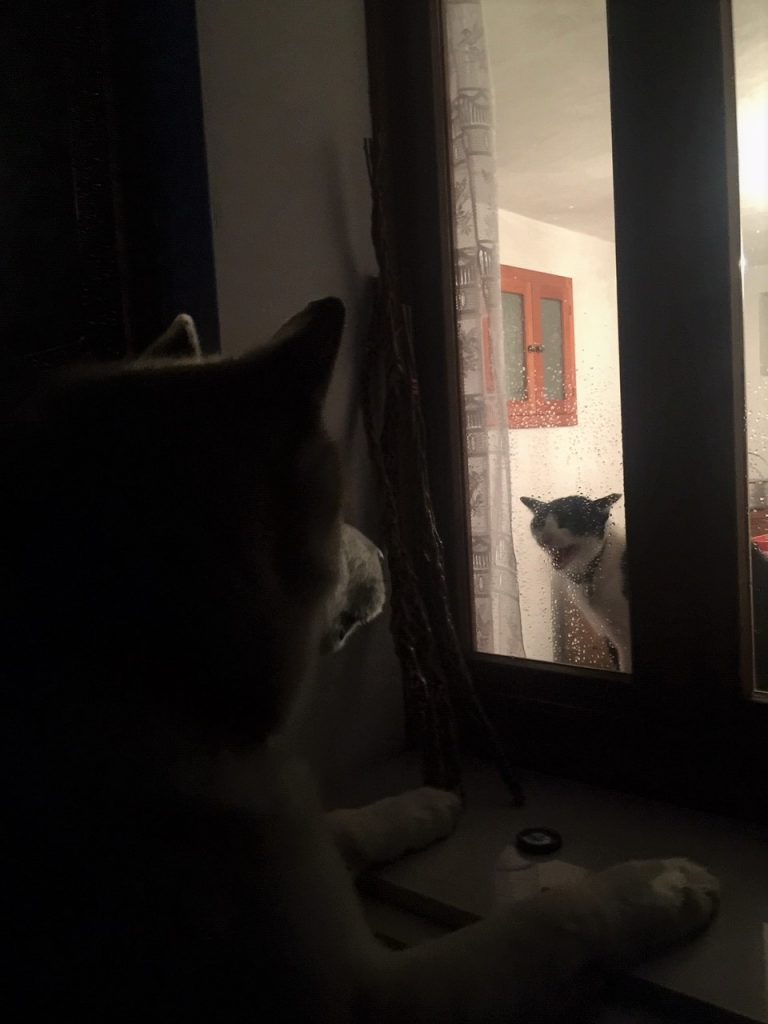
Contrary to his looks and huge size, Rocky is quite a friendly and happy creature who has managed to find his own balance between nature and man.
Don’t miss Queen of the Forest part 3, where an Monte Prat villager, businessman and author Giuseppe “Beppino” Jogna, will reveal the secret for making traditional polenta à la Friulana.

























